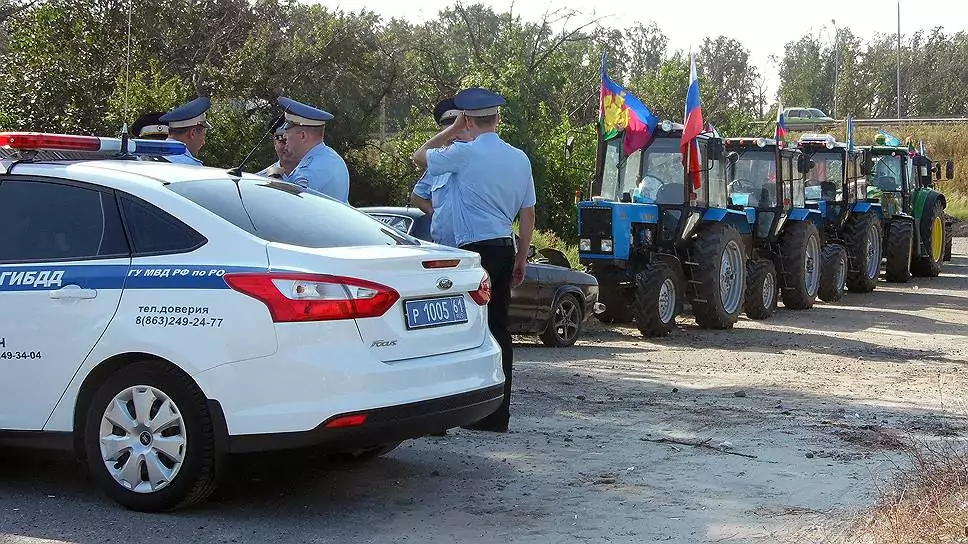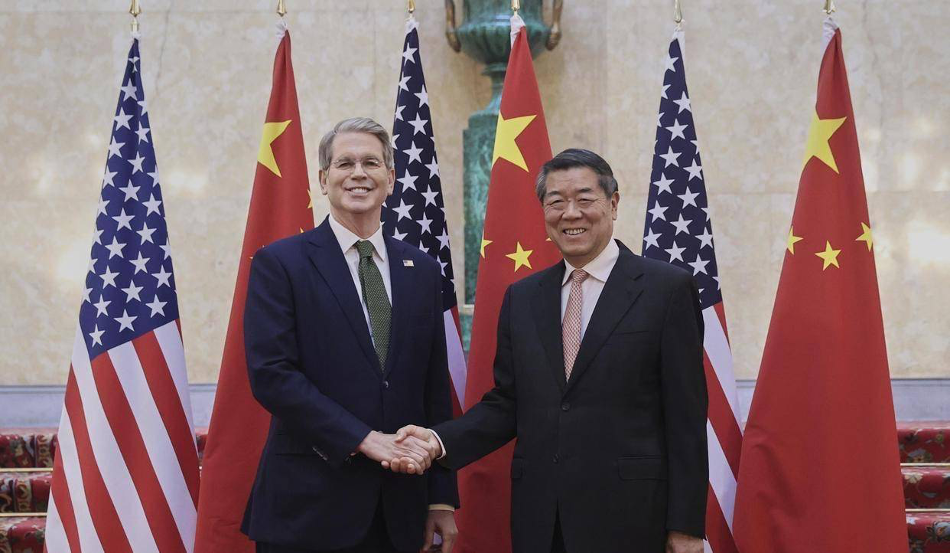Angry Krasnodar Farmers Write Open Letter to Putin
Angry Krasnodar Farmers Write Open Letter to Putin

The saga continues for farmers in Krasnodar protesting corruption in their region and the unfair distribution of land. The farmers originally planned to caravan to Moscow but were intercepted by a delegate sent from the federal government who promised to address their complaints (see EDM, April 6). Presumably, their complaints were not addressed satisfactorily, as the farmers have since held numerous demonstrations in the region. They tried to hold a protest during the visit of Prime Minister Dmitry Medvedev in August but were stopped by police (Kommersant, August 22). Having failed to gain the attention of the federal authorities, on August 21 the farmers organized another convoy of tractors destined for Moscow. They only made it as far as Rostov, where they were due to meet a deputy of the local regional administration. The protest was stopped, ostensibly because they had failed to inform the local authorities. The convoy was encouraged to take up the matter with Krasnodar governor Benjamin Kondratev, despite complaints that he was unable to overrule previous court decisions. A deployment of armed police then compelled the farmers to halt their protest and return to Krasnodar (Kommersant, August 23).
One has to admire the persistence of the Krasnodar farmers who, on September 8, published an open letter to President Vladimir Putin in the weekly newspaper Argumenti Nedeli. The letter bemoans the shrinking of the rural population—most vividly evidenced by the twofold decline in children enrolled in rural Krasnodar schools. The writers attribute this state of affairs to the dominance of agricultural holdings controlled by those who “do not live in villages, hamlets or [Cossack] hamlets; their children do not study in our schools, are not treated in our hospitals and, therefore, do not need to develop rural settlements.” The situation is worsened, in the opinion of the farmers, by the “raider seizures of agricultural holdings,” who are virtually immune from prosecution on account of their lobbyists and lawyers. The farmers also note the uneven enforcement of court decisions as well the lack of uniformity in court decisions, which, they say “is also a crime.” The letter ends by asking the General Procurator to ask six questions “of all holdings, conserves, and physical persons affiliated with state structures of power in the Kuban: 1.) What is the focus of the enterprise and how did they enter the holding? 2.) How many hectares of land are in the holding or concern and how many are from municipal lands? 3.) Where and to what do they pay taxes? 4. How much do they receive in subsidies and grants? 5.) How much credit do they obtain, at what price and rate? Are there sunk credits? 6.) Check for judgments illegally handed down on land questions.” The article ends by claiming that if “we revive the villages, we save Russia!” (Argumenty i Fakty, September 8). This sort of David versus Goliath story is certainly not unique to Russia; across the world, it is a consequences of the increasing intensity of industrial farming practices. But there are certain characteristics in the Krasnodar case that may render it particularly problematic for the Putin regime.
On the one hand, the farmers’ use of patriotic invectives and the image of the downtrodden narod (nation, people) is precisely the ideological cornerstone of Putin’s regime. Given the brazenly public nature of the open letter, Putin arguably cannot afford to do nothing lest his carefully cultivated image as the “fatherly tsar” and a “people’s champion” lose some of its luster. Yet, resolving this problem to the satisfaction of the farmers risks alienating elites who draw succor from the corruption currently tolerated. On the other hand, the timing of the letter just before the September 18 Duma elections is undoubtedly designed to have maximum impact on the administration. In many ways, the letter forms an interesting juxtaposition to the formal process of elections and a recognition that trying to influence the regime through conventional means is futile. Many believe that change to the Putin system will come from regional politics; the further development of this case will test that proposition.


